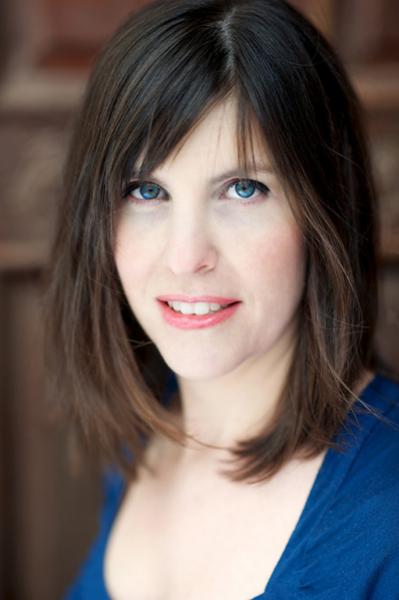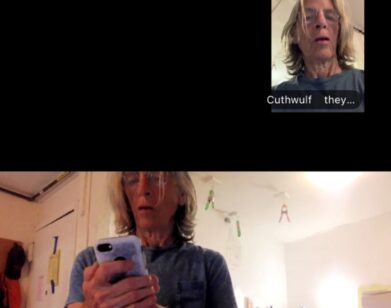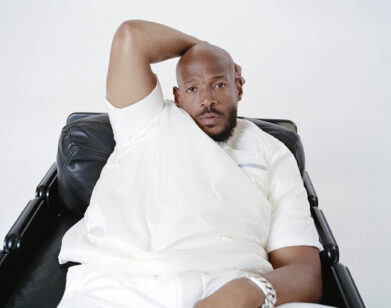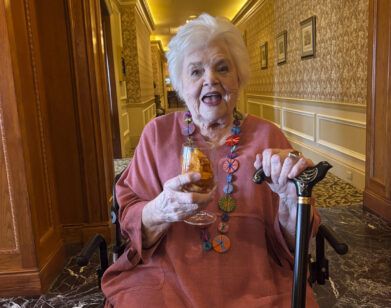Yael Kohen Finds the Girls’ Club

Yael Kohen didn’t write We Killed: The Rise of Women in American Comedy (Farrar, Straus and Giroux) to add her voice to the tiresome debate about whether or not women are funny. Rather, Kohen penned the book to celebrate women in comedy and to uncover how different time periods and cultural climates affected what ladies talked about onstage. It is not a book that feeds into gossip, misogyny, or man-bashing; it’s a clever, honest revelation of the comedy industry, spanning six decades. Kohen’s painstaking research included interviews with a diverse mix of comics and writers, among them Roseanne Barr, Robin Williams, David Cross, and Aubrey Plaza.
We chatted with Kohen about the bawdy broads, intellects, and sex bombs who lit up the zeitgeist.
LIANNE STOKES: I did stand-up for five years. When I started, I wasn’t aware that there was a stigma that women weren’t as funny as men.
YAEL KOHEN: I was unaware as well until Christopher Hitchens wrote that piece in Vanity Fair. My reaction to his article wasn’t anger, but confusion. When I told my husband that there was a whole thing about how men think women aren’t funny he said, “What are you talking about? It’s really sexist for you to accuse men of thinking that.” He never felt that way.
STOKES: [laughs] You chose well.
KOHEN: How was your experience as a female comedian?
STOKES: Excellent. I never really dealt with it until some guy came up to me after a show and said, “You’re like a dude, but with a vagina.”
KOHEN: I didn’t write this book to prove that women are funny. It’s a book about what it took to become a comedian during different time periods, what their style was like and how their style was informed by the times. It’s a history and an understanding about how these women fit into the various movements of their time. You’re not doing comedy in response to what came before; you’re doing comedy in response to what’s going on around you.
STOKES: In your book, agent Barry Katz talks about how Janeane Garofalo told a joke early in her career where you’d have to have read The Scarlet Letter to get it. As elitist as that seems, I respect her for owning her voice.
KOHEN: She was a pioneer of the alternative comedy scene, taking it out of the club and into the coffee shop. She helped a lot of comics both male and female. Also, Chelsea Handler is a great example. You got a sense when she first started her show that she didn’t give a fuck if her audience was female, she was just doing her own brand of comedy. Now she lords over an empire and uses that to prop up other female comedians.
STOKES: Sarah Silverman appeals to straight guys because they relate to her humor.
KOHEN: I think there’s a skill to what Sarah Silverman does and some people imitate that. They go on stage wearing an ironic tee and say provocative, dirty words in a high voice. I don’t think that’s been a good thing in terms of comedy.
STOKES: To your point, I think that when you’re young you haven’t discovered your voice yet, so it’s easy to imitate what you like.
KOHEN: I’m not saying that a lot of women do this, but if you love a certain comedian or style, it’s good to acknowledge that but more important to take the time to develop your own style. Because you have a unique voice and you deserve to be recognized for it.
STOKES: Some high profile female comedians didn’t want to talk to you about being a woman in comedy. Why?
KOHEN: I think they’re tired of talking about it. I didn’t approach the interviews for this book as “women in comedy” questions. I was more interested in hearing about their careers and how they came up. There’s a sense that women are tired of focusing on the “boys’ club” discussion. They want to be known for their comedy and don’t want to come off like they’re whining. Several women mentioned to me that male comedians advocated for them and gave them stage time and opportunities. Not because they were sleeping together. Some women didn’t want to talk about it because they felt that some guys helped them, some guys were assholes, but that they were funny, so what difference does it make?
STOKES: How do you feel about Lorne Michaels?
KOHEN: I requested an interview with Lorne Michaels because I wanted his insight on the topic. Reason being, when you look at the history of Saturday Night Live, when the show had strong women, those were the periods when the show was at its funniest. It could also have been because the people writing for the show during those times were more open to hearing new ideas. Lorne Michaels is a complex figure. There was a while where it appeared that he wasn’t backing women as much as he could have. Then arrived Molly Shannon and Cheri Oteri, which transitioned into the Tina and Amy period. I wanted to know from him what shifted.
STOKES: You got to interview Phyllis Diller for the book, just a few years before she passed away. She was one of the originals, a relic. What was talking to her like?
KOHEN: When I went to her home, her assistants told me I had to call her “Madame Diller” and I had to sit on this velvet green settee. But when she came in and we started talking, she was very warm. She was lucid and sharp, but very frail. When she laughed, it overtook her whole body, and I thought she was going to keel over in front of me.
WE KILLED IS OUT TODAY.






